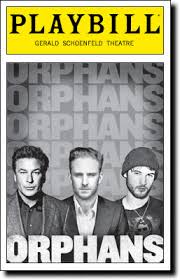Monday Markets for Writers
Monday brings the weekly batch of no-fee competitions/contests, paying submission calls, and jobs for those of us who write (especially those of us who write fiction, poetry, and creative nonfiction).
Monday brings the weekly batch of no-fee competitions/contests, paying submission calls, and jobs for those of us who write (especially those of us who write fiction, poetry, and creative nonfiction).
 Writing-related resources, news, and reflections to read over the weekend.
Writing-related resources, news, and reflections to read over the weekend.
Everyone, have a good, safe, restorative weekend. See you back here on Monday.

Shabbat shalom.
 Last weekend, and thanks to my TDF membership, I had the opportunity to see a performance of Orphans, a new play starring Alec Baldwin that is currently in previews on Broadway. And I was reminded, as I am nearly every time I go to watch a play, that I’d really like to learn how to write a play of my own.
Last weekend, and thanks to my TDF membership, I had the opportunity to see a performance of Orphans, a new play starring Alec Baldwin that is currently in previews on Broadway. And I was reminded, as I am nearly every time I go to watch a play, that I’d really like to learn how to write a play of my own.
So this post is more a request for resources than anything else. I’d love to receive suggestions regarding:
1) online introductory playwriting courses that you might recommend;
2) “how-to” books on playwriting that you have found to be useful; and/or
3) any other suggestions on how I might incorporate playwriting into my writing practice (for instance, I’m guessing that reading actual play scripts would be helpful, and I actually have a script or two on hand, but I’d be grateful for recommendations of scripts that have worked especially well for you, whether you’ve been teaching or studying playwriting).
Thank you all in advance!
Monday brings the weekly batch of no-fee competitions/contests, paying submission calls, and jobs for those of us who write (especially those of us who write fiction, poetry, and creative nonfiction). (more…)